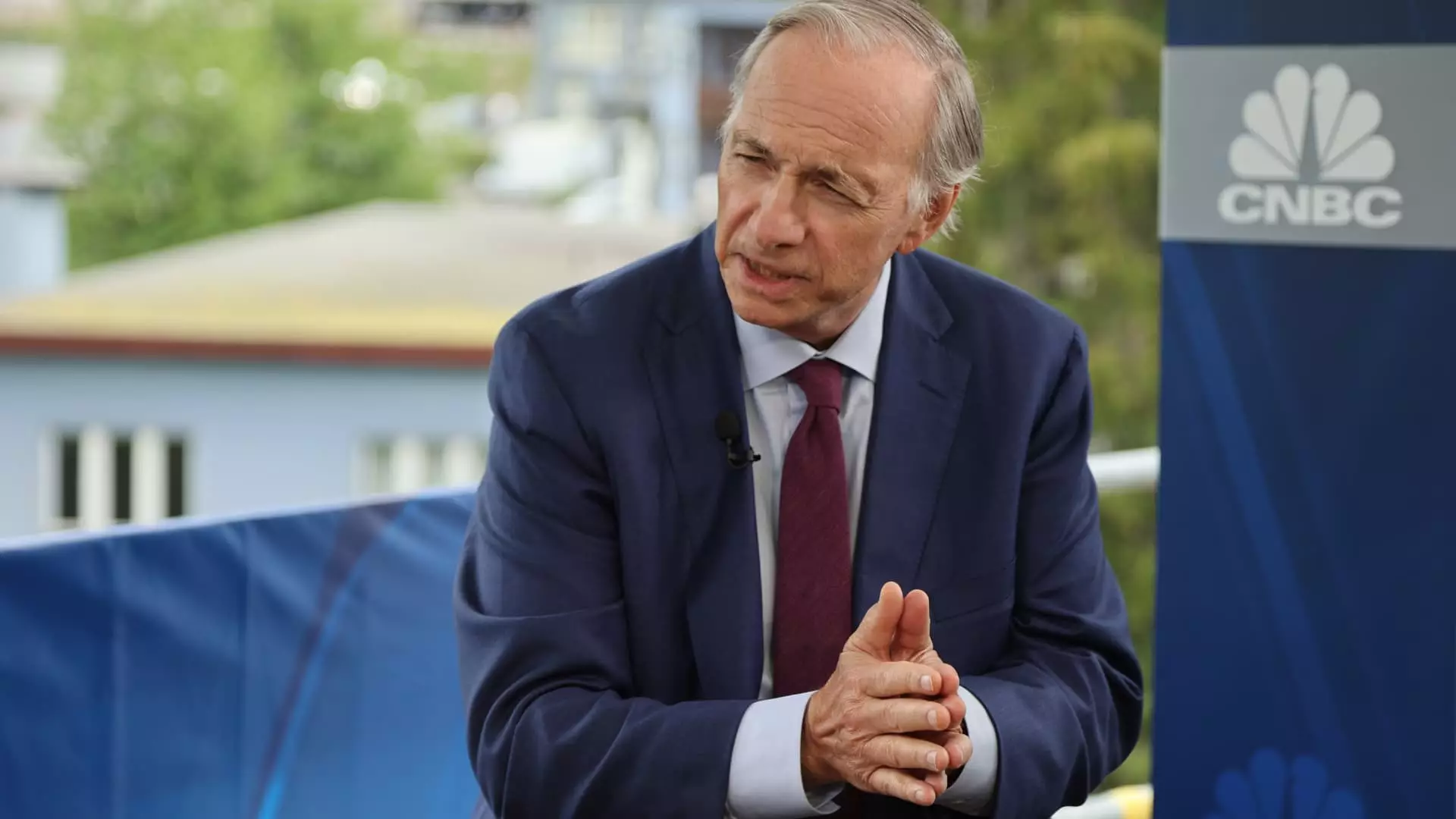As the 2024 U.S. elections approach, the stakes have never seemed higher, according to influential investor Ray Dalio. In his recent comments during an appearance on CNBC’s “Squawk Box Asia,” he asserted that this upcoming election may hold unprecedented significance in the trajectory of the nation. Dalio highlighted the escalating polarization between the major political parties, suggesting that these divisions pose a very real threat to the functioning of American democracy. He strongly believes that the nation needs a leader who embodies the values and interests of the moderate voter—someone who can navigate the turbulent waters of political strife and create a more cohesive society.
Dalio’s keen observation points to a concerning reality: the American political landscape is marked by a stark inability to find common ground. The disagreements between Republicans and Democrats have deepened, with contentious topics ranging from abortion rights to immigration policies and climate change initiatives. This schism raises a fundamental question: to what extent can democracy function when such disparities exist? According to Dalio, the centermost inquiry is whether America can guarantee a peaceful transition of power, reflecting a fear that election outcomes may not be recognized by all parties involved. Such scenarios only amplify concerns about internal disorder.
A significant theme within Dalio’s discourse is the peril posed by a “win-at-all-cost mentality” prevalent within the political arena. This approach fosters an environment that inhibits compromise and debate, both of which are essential for a thriving democracy. Dalio’s assessment elicits the notion that without a concerted effort to find middle ground, political discourse may devolve into a battleground of extremities. For citizens frustrated with the current state of affairs, looking for a pragmatic solution becomes crucial. The question arises: can a new breed of moderate leaders rise to meet the challenge?
Dalio posits that America’s future hinges not just on electoral outcomes but on economic conditions that can foster broad-based prosperity. He lamented that while sectors like education and innovation thrive, these blessings reach only a select few. Prosperity should ideally extend across demographics, allowing for opportunities that are accessible to all. Here, he draws parallels to Singapore, a nation that has deftly balanced order and opportunity through pragmatic governance and social policies.
In closing, Dalio’s vision rests on the idea of moderates uniting to instigate meaningful reforms that address the pressing issues facing American society. Rather than being confined to the extremes of political ideology, the emergence of leaders willing to collaborate offers a glimmer of hope. As inflation rises and the cost of living becomes a gargantuan worry for voters across the spectrum, there’s a palpable need for leaders who can rise above partisanship. The upcoming election, therefore, isn’t just a test of who will lead but a critical juncture that will determine the country’s capacity to function harmoniously in the face of growing discontent. The message is clear: through unity and compromise, the path toward a more prosperous future is not just desirable—it’s essential.

